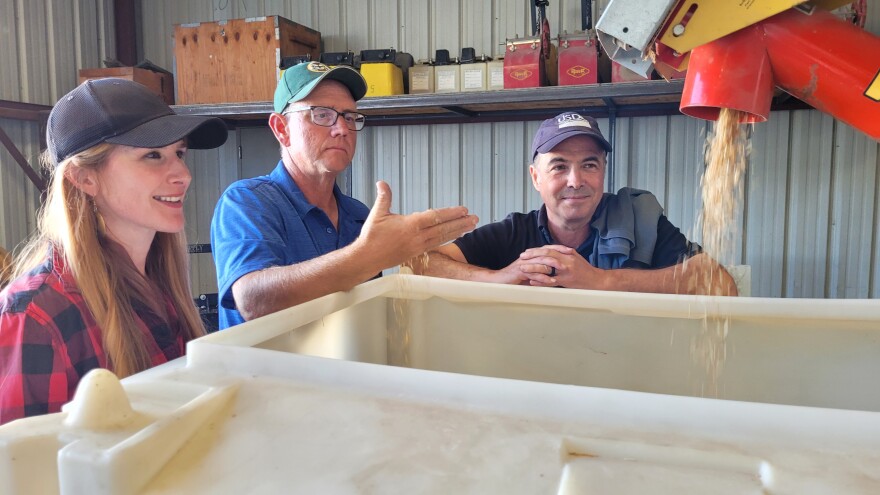Big changes are coming for the U.S. Department of Agriculture. On Thursday, U.S. Agriculture Secretary Brooke Rollins unveiled plans for a “complete reorganization of the USDA,” that will relocate about 2,600 USDA jobs in Washington, D.C. – more than half the local workforce - to five new regional hubs, including one in Fort Collins.
In a video addressing USDA employees, Rollins said she wants to make the agency more efficient and effective.
“President Trump promised to realign federal spending, eliminate duplication and redundancy and ensure all agencies are efficiently and effectively delivering services to our constituents,” Rollins said. “We are doing just that by moving our key office's services outside Washington, D.C., to ensure that USDA is located closer to the people we serve, while also providing a more affordable cost of living for our employees and their families.”
An official memorandum spelled out more details of the plan, which include shuttering Agricultural Research Service (ARS) area offices, consolidating the National Agricultural Statistics Service (NASS), shrinking the number of regional offices in the Forest Service and restructuring the Natural Resources Conservation Service (NRCS). In addition to Fort Collins, four other regional hubs will be located in Raleigh, N.C.; Kansas City, Mo.; Indianapolis, Ind.; and Salt Lake City, Utah.
“I want to be clear here that this is an announcement of a reorganization, not a large-scale workforce reduction,” Rollins said in her video. “We will carry out this reorganization through a transparent, common-sense process that preserves USDA critical health and public safety services that the American public relies on.”
But Rocky Mountain Farmers Union president Chad Franke says he’s concerned the move will prompt key USDA workers to leave their jobs rather than upend their lives in a relocation.
“Having those decision makers closer could be a good thing,” Franke said. “But if those positions are empty, then that's not going to be good for anybody.”
If history provides any lesson, according to National Sustainable Agriculture Coalition Policy Director Mike Lavendar, empty positions just might be the goal. He pointed to similar relocations within the agency that happened during the first Trump term, which resulted in mass resignations that ultimately hurt farmers and ranchers.
“If we want to have a conversation about how do we improve USDA to better serve all farmers and ranchers, let's do that,” Lavendar said. “Tossing out a five-page memo that is going to fundamentally change how USDA works with farmers and ranchers without any input, is not the way to do it.”
The USDA employs roughly 100,000 workers. Ninety percent of them are already located outside of the Washington D.C. area in local and regional offices of USDA divisions like the Farm Service Agency, the NRCS and Rural Development.
“It's not as if USDA is not in these places,” Lavendar said. “I think we really need to be thinking about this reorganization as something different: an attempt to root out staff and hire a different type of workforce.”
Farmers and ranchers depend on USDA staff for everything from technical assistance to grant and loan processing and to apply to an alphabet soup of USDA programs.
“Our big concern is that staffing levels remain adequate,” Franke said. “It takes people to implement the projects and to make everything happen, and the end of the day, if they don't have adequate staffing, those programs don't happen and our farmers and ranchers suffer.”
In a press release, Governor Jared Polis focused on the potential benefit of the regional hub in Fort Collins. He applauded the move as an opportunity to bring new jobs to Colorado.
“It is no surprise that Fort Collins has been chosen as a new service center by the U.S. Department of Agriculture. Colorado is a national leader in agriculture, supporting rural communities and creating jobs in ag,” Polis said. “Especially with the loss of federal jobs in other areas, we welcome the new Department of Agriculture jobs being moved to Colorado,”
In response to questions, a USDA spokesperson emailed a written statement to KUNC.
“Today’s announcement was a first stepi. Some aspects of the reorganization will be implemented over the coming months while other aspects will take more time to implement. As the reorganization progresses, employees and other relevant parties will be updated accordingly.”



